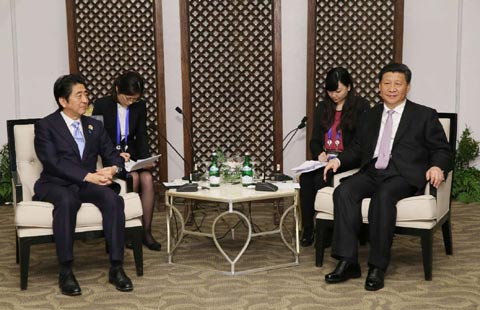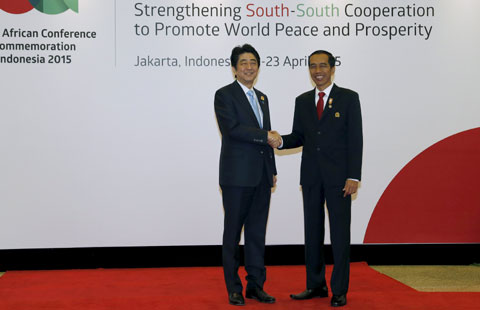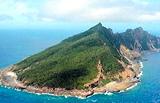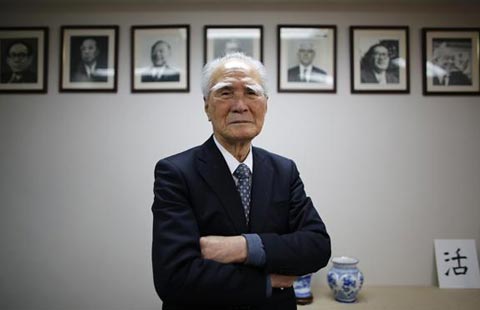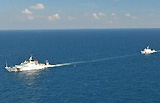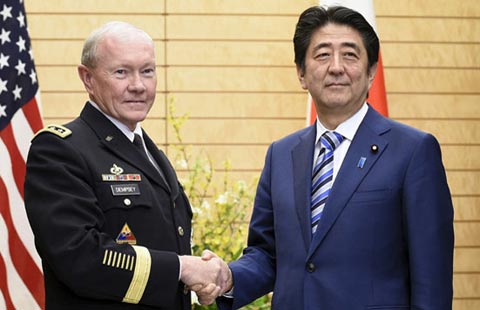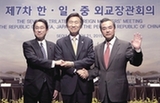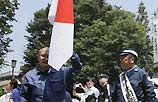Xi meets Abe in Jakarta on China-Japan ties
[2015-04-22 19:13]Chinese President Xi Jinping and Japanese Prime Minister Shinzo Abe held a meeting at the request of the Japanese side Wednesday.
Abe expresses 'deep remorse' over war without mentioning responsibility
[2015-04-22 14:44]Japanese Prime Minister Shinzo Abe said on Wednesday that Japan, with feelings of deep remorse over the past war, made a pledge to adhere to the Bandung principles, which highlights peace and cooperation.
Opposition leader urges Abe be cautious on war anniversary statement
[2015-04-20 22:09]Katsuya Okada, leader of the Japanese largest opposition party, the Democratic Party of Japan (DPJ), on Monday urged Prime Minister Shinzo Abe to be careful about his statement to be released in the 70th anniversary of the end of World War II.
Diaoyu Islands
[2015-04-09 11:11]China on Wednesday blasted Japan over its claims that a new collection of documents prove its sovereignty over the Diaoyu Islands.
Murayama to attend China's war victory anniversary
[2015-04-04 11:02]Former Japanese Prime Minister Tomiichi Murayama intends to attend the memorial events in China marking the 70th anniversary of the victory of anti-Japanese war in September, local media reported on Friday.
China rips Japan's draft policy report
[2015-04-02 02:57]The Foreign Ministry rebutted the latest Japanese accusation that China had "unilaterally" changed the status quo in the East China Sea.
Abe should not miss the chance to build bridges
[2015-03-31 08:25]Abe will miss a chance for Japan's reconciliation with other Asian nations if he shuns the ceremonies at the Lugou Bridge.
China, S. Korea remain cautious
[2015-03-23 07:40]Following a three-year hiatus, the Seventh Trilateral Foreign Minsters' Meeting, which included China, Japan and South Korea, was held on Saturday in Seoul.
Chinese FM urges Japan to face history squarely
[2015-03-22 02:48]Chinese Foreign Minister Wang Yi urged Japan to face its wartime history squarely so as to pave the way for the smooth development of bilateral ties.
Japanese experience a good lesson for Chinese regulators
[2015-03-16 07:44]Authorities are determined to keep the economy from taking the same path of recession and deflation that has blighted its neighbor.
War history
[2015-03-13 04:34]China is "closely watching" Japan's policy agenda and stances this year related to history, according to a senior Chinese diplomat.
China urges Japan to 'make right choice' on history
[2015-03-10 08:58]China urged Japan to "make the right choice" on history by facing up to its past aggression on Monday.
